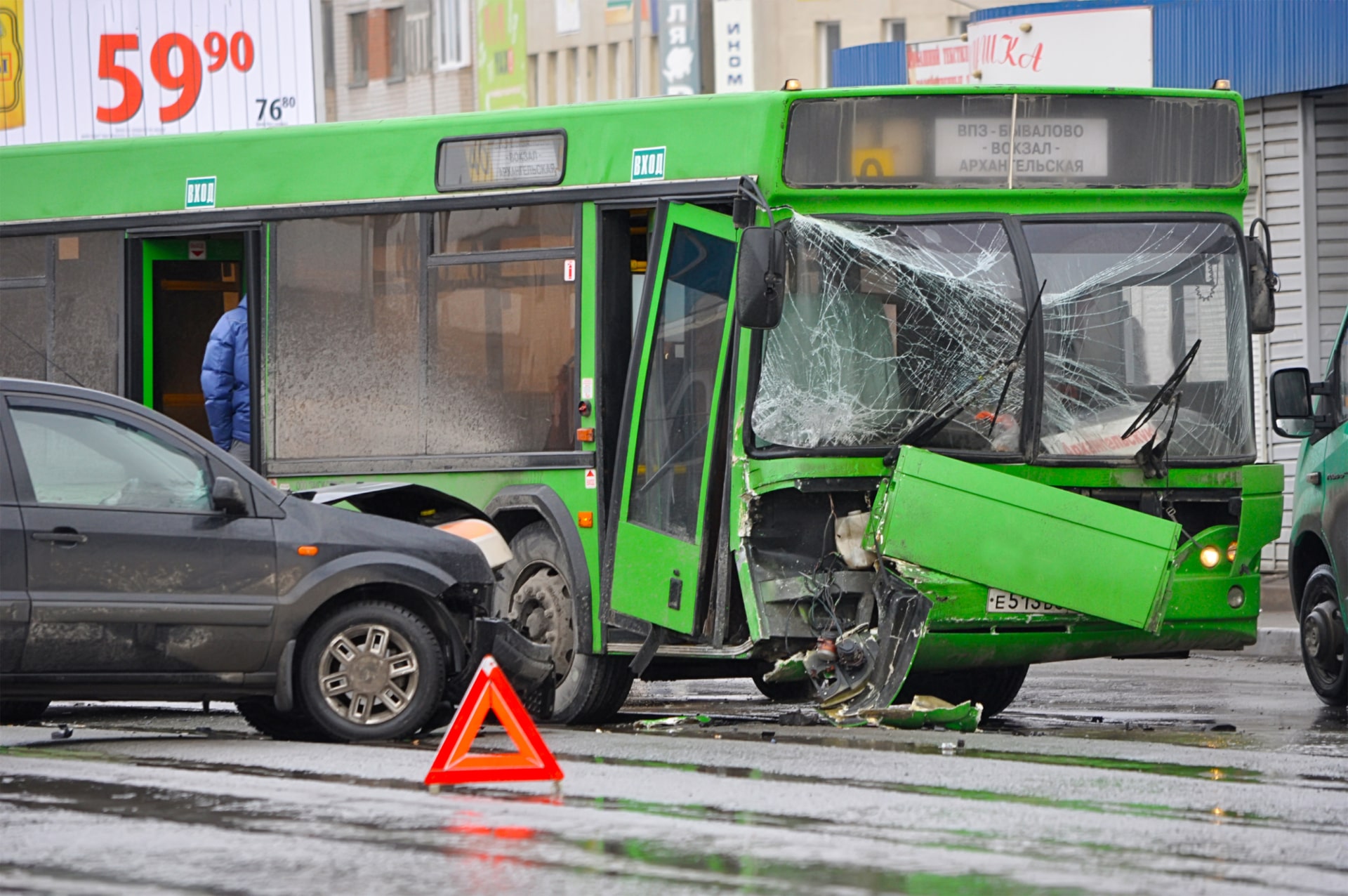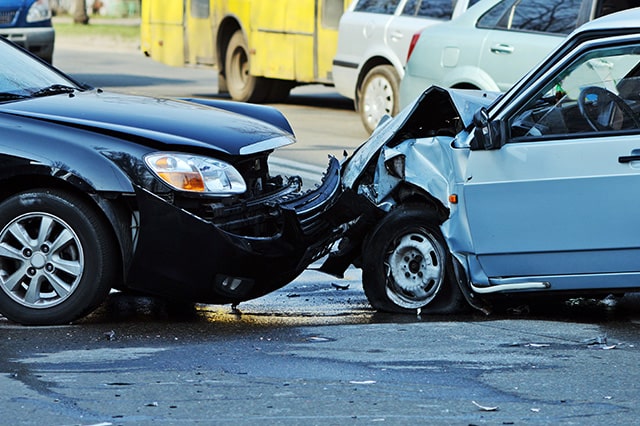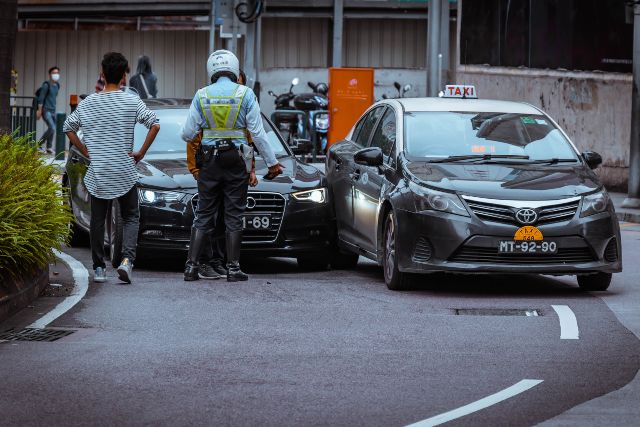
Montpelier Car Accident Lawyer






Finding a Trusted Montpelier Car Accident Attorney for Your Case
Car accidents create serious challenges for residents throughout Montpelier and Vermont every year. The Insurance Institute for Highway Safety reports that in 2023, 69 people died from fatal vehicle crashes, with 19 of those dying as car occupants.
If you’ve suffered injuries in a Montpelier car accident, you may be entitled to seek compensation for your medical bills, lost income, emotional distress, and property damage. The process for recovering these damages can feel overwhelming, especially when you are already dealing with the physical and emotional aftermath of a collision.
At Sabbeth Law, we step in when Montpelier residents need immediate, strategic intervention after a car crash. Our firm is deeply familiar with the Vermont car accident laws that affect your claim. We move quickly to protect your rights, collect evidence, and fight for the full compensation you deserve.
For urgent legal assistance, contact a Vermont car accident lawyer today.

Navigating Car Accidents: Your Rights After a Car Accident
If you are injured due to a car accident, you generally have three rights:
First, have the right to have your damages considered. These include medical costs, lost wages, pain and suffering, and property damage.
Second, you have a legal right to know who insured the at‑fault vehicle. Vermont law requires the owner/operator to notify injured persons or property owners of the name, address, and policy information of all liability insurers within five days after injury or damage.
Third, you have a right to have the crash reported if it meets certain thresholds. For example, crashes with injury or property damage of $3,000 or more must be reported in writing to the Commissioner of Motor Vehicles within 72 hours.
Contact UsTypes of Compensation
Knowing what compensation is available and how to maximize your recovery after an accident makes a critical difference. At Sabbeth Law, we assist clients through every avenue of recovery allowed under Vermont law.
There are two major types of damages that you can claim, namely, economic and non-economic.
Economic Damages
- Medical expenses (current and future)
- Lost wages and diminished earning potential
- Property damage
- Rehabilitation costs, home care, and out-of-pocket expenses
Non-Economic Damages
- Pain and suffering
- Emotional distress and mental anguish
- Loss of enjoyment of life
- Physical disability or disfigurement
- Loss of consortium for spouses
In severe cases, Vermont law may also allow punitive damages if the at-fault party’s behavior was especially reckless or malicious. Vermont’s modified comparative negligence means you can recover damages even if partially at fault—up to 50% responsibility—though your award is reduced accordingly.
Our team analyzes every angle for compensation, including your own uninsured/underinsured motorist coverage, and pursues damages from all available resources. We rely on a network of accident reconstructionists, medical experts, and economists to present solid evidence of your injuries, financial losses, and lasting impacts. This allows us to demonstrate the full value of your claim to insurers—and to the court, if necessary.

Steps to Take Immediately After a Car Accident in Montpelier
What you do right after a car accident can be crucial. At Sabbeth Law, we support clients through every stage, emphasizing these steps in the aftermath of a collision:
- Ensure Safety.
- Move to a safe location if possible; activate your hazard lights.
- Check yourself and your passengers for injuries before moving.
- Call Emergency Services.
- Dial 911 and request medical help if necessary.
- File a police report, which is an official, objective record that will prove vital during your claim.
- Seek Immediate Medical Attention.
- Even if you feel fine, see a doctor immediately; not all injuries are apparent at the scene.
- Immediate medical documentation ties your injuries directly to the crash.
- Exchange Information.
- Get complete contact and insurance information from all involved drivers.
- Remain calm and never admit fault.
- Document the Accident Scene.
- Take photos of all vehicles, road conditions, visible injuries, debris, and signage.
- Photograph the weather, lighting conditions, and the overall scene from multiple angles.
- Gather Witnesses.
- Collect names and contact info of any witnesses—independent accounts can prove essential, especially with disputed liability.
- Notify Your Insurance Company.
- Report the accident truthfully, but don’t admit fault or guess about injuries.
- Avoid recorded statements to insurers without legal counsel.
- Keep Thorough Records.
- Keep all medical bills, accident reports, correspondence, repair estimates, and notes about how your injuries affect your life.
- Be Careful with Early Settlement Offers.
- Quick offers often don’t account for hidden injuries or future financial needs.
- Consult a trusted attorney before accepting any settlement.
- Contact a Montpelier Car Accident Lawyer.
- It’s crucial to act quickly so we can start preserving evidence and advocating for you.
Knowing what to do after a car accident is key to preserving your rights. If you are unsure of what to do, know that we are here to assist you.

How Sabbeth Law Can Help
Choosing our firm means partnering with a legal team that goes beyond case management. We approach your Montpelier car accident case with a determination to support you personally and maximize every aspect of your claim.
Some reasons clients choose us are:
- Individual Attention: We invest time to understand your unique injuries, circumstances, and personal needs, from day one to resolution.
- Focused Vermont Knowledge: Our deep familiarity with Vermont laws, local courts, and insurer tactics gives your claim an extra edge.
- Network of Experts: We partner with accident reconstruction specialists, physicians, and financial experts to strengthen your case with evidence and testimony.
- No Upfront Fees: You never pay a fee unless we win compensation for you.
- Strategic Advocacy: We negotiate firmly and prepare each case meticulously for trial, always pushing for positive results even in complex or high-value cases.
- Community Commitment: Our efforts extend beyond the courtroom through initiatives like the Sober Holiday Rides program, reflecting our dedication to both client care and public safety.
Our support doesn’t end at legal paperwork. We assist with medical appointment coordination, insurance paperwork, and connections to additional community resources.
Contact UsSchedule Your Free Consultation with Sabbeth Law Today
Time is critical after a car accident. Vermont’s statute of limitations for personal injury claims is three years, but vital evidence can fade much sooner. Do not let the insurance company pressure you into a quick, inadequate settlement. At Sabbeth Law, we prioritize your immediate needs, act swiftly to protect evidence, and build a results-driven plan for recovery.
From the moment you reach out, you can expect us to address your concerns, review your documents, help you understand your options, and provide a realistic assessment of your case. We keep your needs at the center of every strategy and give you the peace of mind to focus on your recovery.
Don’t navigate the aftermath of your Montpelier car accident alone. Schedule your free, no-obligation consultation today.
FAQs
Who is eligible to make a claim after a car accident in Vermont?
- Anyone injured or whose property is damaged in a car crash may be eligible to recover compensation if another party is at fault.
- You may also bring a claim even if you bear some of the fault, as long as your share of fault does not exceed that of the defendant. Vermont follows a modified comparative negligence rule, which means your recovery is reduced in proportion to your fault.
- Claims can also be brought against the State if a state employee acting in the scope of their job caused the crash. There are additional rules and limits when the State is involved.
What are the primary legal risks or things to watch out for?
- If you delay seeking medical attention, evidence of your injuries may weaken, or insurance/defendants may challenge whether the crash caused the injuries.
- If you share fault, your compensation will be reduced proportionally. If your share of fault is more than the defendant’s, you may recover nothing under Vermont’s modified comparative negligence law.
- If the at‑fault party lacks insurance or has insufficient policy limits, recovering full damages may be difficult; you may need to rely on your uninsured or underinsured motorist coverage.
- Missing a deadline almost always bars your legal case.
What are the deadlines (statutes of limitations) for car accident claims in Vermont?
- For personal injury or property damage (non‑fatal accident): 3 years from the date of the accident.
- For Wrongful death: 2 years from the date of death.
Some situations trigger exceptions, such as if injuries are not discovered right away, or if the injured person is a minor, incapacitated, or out of state.
What is the legal process if I want to pursue a claim or lawsuit?
- Collect evidence right away: Get photos, witness contact info, police or crash reports, and medical records.
- Notify your and the at‑fault party’s insurance companies: Vermont law requires that owners/operators provide insurance info to injured persons or property owners within five days of damage.
- File any required reports: If damage meets thresholds (e.g. $3,000 or injury), you must file a written crash report with the Commissioner of Motor Vehicles within 72 hours.
- Negotiate with insurers: Many claims are resolved through settlement rather than going to court. You or your attorney may exchange documentation, demand letters, and negotiations.
- File a lawsuit if needed: If a fair settlement cannot be reached, you may file a lawsuit in civil court before the relevant statute of limitations expires. If the State is a defendant, additional procedural rules may apply.
- Go to trial or mediation/arbitration: Some cases go to trial; others may resolve via alternative dispute resolution. The outcome depends on the evidence, legal arguments, and sometimes the level of fault.
Practice Areas
Client Testimonials
LUKE PARMENTER“Immediately after my son’s injury at work, he was treated poorly. Over the course of the next few days it became even worse, so I called Mike and he and Crystal have been absolute lifesavers during the process. Mike is not your typical stuffed suit lawyer who only cares about the bottom line he genuinely cares about his clients and his assistant Crystal is beyond amazing! My thanks to you both!”
Client Testimonials
“Immediately after my son’s injury at work, he was treated poorly. Over the course of the next few days it became even worse, so I called Mike and he and Crystal have been absolute lifesavers during the process. Mike is not your typical stuffed suit lawyer who only cares about the bottom line he genuinely cares about his clients and his assistant Crystal is beyond amazing! My thanks to you both!”
LUKE PARMENTER
“I could never ask for a better attorney, to fight for me, to believe in me, and have faith in me, than what I found in Mike Sabbeth, He doesn’t treat you like a client, he treats you as if you are one of his own family members, He will fight for you, with all he has, and is ALWAYS up front and honest with you about everything!”
SANDRA DRUGE
